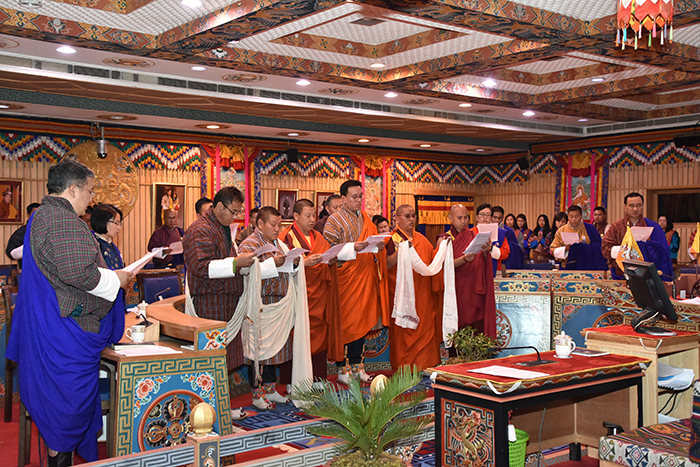MB Subba
The 24th session of the National Council (NC) concluded yesterday after deliberating five legislative and eight money bills, among other issues.
In his closing remarks, Chairperson Tashi Dorji said that the session was one of the longest and expressed his appreciation to members.
“I would like to request the committees to work with the same spirit,” he said.
The session was frustrating for the House when it came to the Impeachment Procedure Bill and the Minister and Minister’s entitlement Bill. The House failed to convince the National Assembly to deliberate the bills, which were passed in the 23rd session.
The NC passed two new legislative bills – Lhengye Zhungtshog Bill and Entitlement and Service Conditions (amendment) Bill for the Holders, Members and Commissioners of Constitutional Offices.
During the discussions on the Lhengye Zhungtshog Bill, members stated that the government should be able to recruit non-civil servants in the Cabinet. Some members were of the view that political appointments made by the past governments were in violation of laws.
The bill seeks to repeal the Lhengye Zhungtshog Act of 1999.
The Entitlement and Service Conditions (Amendment) Bill for the Holders, Members and Commissioners of Constitutional Offices increases the minimum service years for the members and commissioners to 25 from 20 and the heads of the constitutional offices to 30 from 25 years.
The House also passed the Penal Code (Amendment) Bill 2019 and the Civil and Criminal Procedure Code (Amendment) Bill of Bhutan 2019.
In the Penal Code Bill, the NC has proposed the need to categorise fronting among Bhutanese citizens separately arguing that it is rampant in the country.
The NC also proposed that if a sexual intercourse between children of 16 years to 18 years was consensual at the time of occurrence, it should not be considered rape.
Among other changes, the Civil and Criminal Procedure Code (Amendment) Bill, besides written deposition by the witness and parties, the court shall maintain electronic record and transcribe the court proceedings.
The House did not call a post-session conference, breaking away from the past practice.


